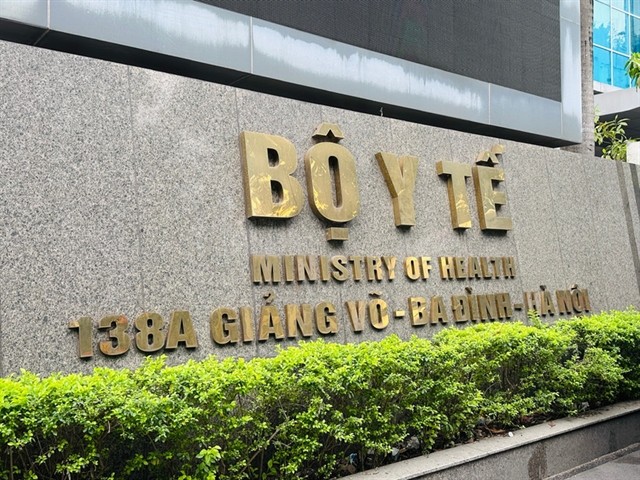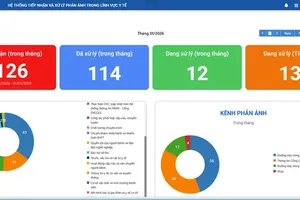The Ministry of Health (MoH) on Sunday reported that in the past 12 years, Vietnam has not recorded any cases of cholera, but warned extensive trade and tourism exchanges could lead to a spread in the community.
Currently, no outbreaks have been reported in the European and Western Pacific regions, with most cases seen in the Eastern Mediterranean and African regions.

The MoH cited information from the World Health Organization (WHO) stating that from the beginning of this year until August 29, WHO has monitored 409,222 cholera cases with 4,738 deaths reported in 31 countries worldwide. Six of these countries reported a fatality rate above 1 percent.
Although the number of cases decreased by 20 per cent compared to the same period last year, the number of deaths increased by 46 percent.
WHO assesses that the global cholera situation is becoming complicated, with outbreaks occurring in 31 countries and high fatality rates.
WHO evaluates that: "Due to the scale, severity and interconnected nature of these outbreaks, the risk of further spread within and between countries is very high".
The Eastern Mediterranean region this year reported the highest number of cholera cases (230,991 cases in six countries), followed by the African region (172,750 cases across 23 countries), the South-East Asian region (2,985 cases across five countries) and the Americas (2,496 cases in one country).
The highest number of cholera-related deaths occurred in Africa (3,763 deaths, accounting for 2.2 percent), followed by the Eastern Mediterranean (943 deaths, 0.4 percent), the Americas (31 deaths, 1.2 percent) and South-East Asia (one death, 0.03 percent).
Cholera is re-emerging in several countries, including some that had not reported significant cases for many years, such as Chad and the Republic of Congo, while others like South Sudan and Sudan continue to experience outbreaks that began last year with significant geographical expansion.
On August 26 this year, the Africa Center for Disease Control and Prevention (Africa CDC) and WHO launched the Emergency Preparedness and Response Plan for cholera in Africa.
Immediately after receiving information and recommendations, the MoH contacted WHO to update and exchange information on the global cholera situation and assess the risk of cholera in Vietnam.
To enhance cholera prevention efforts in the future, the Department of Disease Prevention will closely monitor the epidemic situation and instruct provinces and cities to strengthen disease prevention measures.
It will organise a risk assessment meeting on the transmission of cholera involving international experts from the WHO, US CDC and domestic specialists to promptly propose appropriate prevention and control activities.
Units will increase inspections, guidance and supervision at border gates and high-risk areas for cholera entry into the country.
Cholera is an infectious disease characterised mainly by diarrhoea, dehydration and acute electrolyte imbalance, which can cause large-scale epidemics with high mortality rates.
Cholera spreads through the digestive tract, mainly by eating and drinking. The cholera bacteria enter the digestive tract of healthy people through contaminated water and food, especially seafood.
About 75 per cent of people infected with the cholera bacteria show no symptoms but still excrete the bacteria into the environment for seven to 14 days. Among symptomatic cases, 80 percent are mild to moderate, and 20 percent suffer severe dehydration.
Cholera bacteria can survive for a long time in brackish water near river mouths or coastal areas. In water, the bacteria mainly live parasitically on aquatic planktonic organisms such as algae and particularly on crustaceans like shrimp, crabs, clams, snails and mussels.
To proactively prevent cholera, the MoH recommends that those returning from countries or regions with increasing cholera outbreaks should monitor their health for five days.
If any abnormal signs appear such as severe vomiting and diarrhoea leading to serious dehydration and electrolyte imbalance, causing shock, they should immediately seek medical attention for examination, consultation and timely treatment.
People should maintain personal hygiene by washing hands frequently with soap before preparing food, before eating and after using the restroom; as well as maintain environmental hygiene by collecting garbage and killing flies; ensure food safety by eating cooked food and drinking boiled water; protect water sources and use clean water.
People travelling or working in cholera-affected areas should proactively prevent the disease, monitor their health and inform health authorities if experiencing cholera symptoms.
























